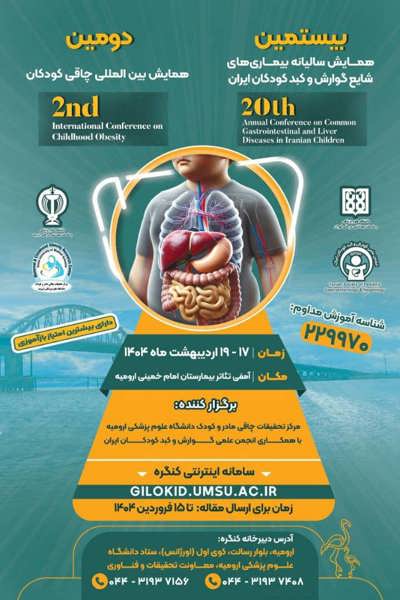0% Complete

صفحه اصلی
/
بیستمین همایش سالیانه بیماری های شایع گوارش و کبد کودکان ایران و دومین همایش بین المللی چاقی کودکان
نویسندگان :
کلمات کلیدی :
چکیده :
لیست مقالات بایگانی شده
Mahsa Gholinejadzirmanlou - Sima Pourteimour
MEHRNAZ Ghaffari Fakhrzad - Hamidreza Hoshmand
Mahsa Mahmoudinezhad - Vali Musazadeh - Mohammad Alizadeh - Amir Hossein Faghfouri
Adel Ghorani-Azam - Samaneh Sepahi
Mojtaba Keikha - Roya Kelishadi
Mahdiyeh Abbasi - Milad Feizi - Sima Pourteimour
Negar Asadi - Gholamreza Asadi - Elham Yousefi - Shahram Khademvatan
Roghayeh Faraji Akhijahani - Aydin Mahmoud Alilou - Parinaz Mahmoud Alilou - Amir Reza Bana Nasli - Amir Hossein Eskandari - Asal Khaksar Kolvanagh - Pouria Shieeh - Alisan Khodayarlo - Sina Manouchehrnia - Sana Nasirpour - Meysam Najafi - Reza Rostami - Pardis Pour Ali
Ladan Soltanzadeh - Ali Mirzaee AghGonbad - Sulmaz Soltanzadeh
Yousef Mohammadpour - Shahram Ebrahimi Moradali - Vahid Hoseinpour - Rasul Bidel Nikoo - Saeideh Rahimi

